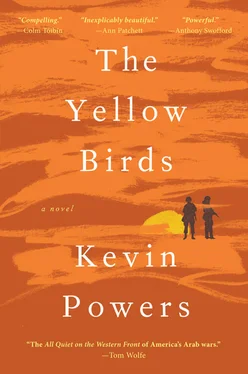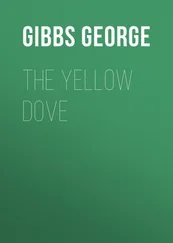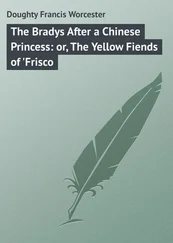I sat down there awhile until the sun was straight above me and the light fell down in wide columns and sweat ran down between my shoulder blades. I decided then to walk the tracks toward the city. It wasn’t so much a decision as it was a product of trying to turn off my mind. I couldn’t stop thinking about Murph. I drifted and followed the guidance of the tops of my boots and I tried not to think and when I got back up to the porch, I wiped the sweat from my forehead, opened the sliding door, put a few things in my duffel bag, and left.
I hadn’t known what I was doing then, but my memories of Murph were a kind of misguided archaeology. Sifting through the remains of what I remembered about him was a denial of the fact that a hole was really all that was left, an absence I had attempted to reverse but found that I could not. There was simply not enough material to account for what had been removed. The closer I got to reconstructing him in my mind, the more the picture I was trying to re-create receded. For every memory I was able to pull up, another seemed to fall away forever. There was some proportion about it all, though. It was like putting a puzzle together from behind: the shapes familiar, the picture quickly fading, the muted tan of the cardboard backing a tease at wholeness and completion. I’d think of a time when we sat in the evening in the guard tower, watching the war go by in streaks of red and green and other, briefer lights, and he’d tell me of an afternoon in the little hillside apple orchard that his mother worked, the turn and flash of a paring knife along a wrap of gauze as they grafted uppers to rootstocks and new branches to blossom, or the time he saw but could not explain his awe when his father brought a dozen caged canaries home from the mine and let them loose in the hollow where they lived, how the canaries only flitted and sang awhile before perching back atop their cages, which had been arranged in rows, his father likely thinking that the birds would not return by choice to their captivity, and that the cages should be used for something else: a pretty bed for vegetables, perhaps a place to string up candles between the trees, and in what strange silences the world worked, Murph must have wondered, as the birds settled peaceably in their formation and ceased to sing. And I’d try to recall things until nothing came, which I quickly found was my only certainty, until what was left of him was a sketch in shadow, a skeleton falling apart, and my friend Murph was no more friend to me than the strangest stranger. My missing him became a grave that could not be filled or leveled, just a faded blemish in a field and a damn poor substitute for grief, as graves so often are.
So I took the railroad tracks, roughly following the old Danville line northeast toward the city. It began to rain a little. The creosote seeped out of the railroad ties and became slick, and the wet gray aggregate shifted under my boots. I walked slowly, more or less shuffling from one railroad tie to the next, hardly looking up. Though I was in no hurry and had no destination in mind, the trees opened up and before I realized how far I’d gone I was above the river standing on the railroad bridge’s first trestled arch. The sun would soon be going down behind the trees, and the river was calm and flat, and it bent out of sight and trailed gently off toward its beginning in the mountains. The water was all a bright purple and orange where it reflected the ruddy clouds in the fading light, and I looked over the railing down onto the old stone piers of earlier iterations of the bridge where earlier iterations of aimless walkers must have seen some kind of sight like this and stopped and stood for a while and looked out over the water taking a deep breath and maybe seeing a small wavy outline of themselves reflected down below, with all that space around, thinking there was just so much damn space to be in that it hurt.
Soon enough I felt the dull rumble of a train shudder up the tracks, and I saw the first hint of its lamplight coming around the bend on the river’s other side. The sun was not quite down yet so the light around the bend was indistinct and only twinkling a little, like a star seen at daybreak or dusk. I slid down off the trestle and a little ways down the steep dirt bank and then I sat and watched the outline of the train moving, skylit, over the bridge from one side to the other. I could barely make out windows, much less see into them, so I did not see if the train was crowded but still I thought I might want to be on it. Maybe the train was coming from D.C., crossing the bridge north to south as it was. Maybe it was headed down to Raleigh or Asheville or perhaps cutting west on a hitch line out toward Roanoke and the Blue Ridge. I looked for a place to jump on but I did not see one because the train against the sky and the lights of the city to the east moved like a black shape in the blacker night.
A small deer run led down the hill below the bridgehead toward the flat, muddy riverbanks. There were fifty yards or so of good bottomland with birches and elms scattered around and then little islands leading farther out which became sparse until they were just spits of sand and muck between dark runnels of water. The broad river, not yet whitecapped, ran a half or a quarter of a mile to the other bank. Beyond the river and up the opposite hill, the city stood outlined against the sky. It squatted on the high ground above yet more rail lines and past the remains of a canal carved out by colonial merchants who sought to break the impediment of the fall line which Richmond straddled. And it seemed, as I lit a fire by the waterside and sat under a lean-to of birch branches, that whole rotations had reversed themselves and that I alone watched the city and the ground on which it sat spin throughout the night inside the universe.
When I woke I saw that the fire had decayed to ember in the night. It was late morning and the sand in the bright light looked like burlap sacking where I’d slept. The driftwood from the fire was all black and charred. Music swam toward me from a boom box leveled on a midstream rock where a group of boys and girls about my age lay out on towels or jumped into the swift water, laughing. I could see Luke, but I couldn’t tell who the others were.
The ash and smoke had seeped into my skin while the fire burned out during the night, and I waded into the water below the rail bridge to try to wash it off, but I could still smell it an hour later. I climbed back up the hill and onto the tracks again and shuffled across the bridge one hundred feet above the water. I moved to the edge where the ties met the structure of the bridge itself and moved along the oxidized metal, occasionally swinging my foot out over the water flowing down below while watching the kids laugh and swim in the fresh water. The day was warm and clear, and the sky behind the city was bright blue and empty. When I got to the north bank of the river, I followed the tracks toward the city for a while, then turned down a worn path that led toward the water.
It was hard to cross the canal and even though it had been cut out some two hundred years before, it still seemed industrial and slightly dirty. Finally, I found a spot where the river hung up behind a couple of downed oaks on the canal side and doubled back toward the path along the river’s edge. It took me to a campsite looking right out over the water, and it was the afternoon now and the site was empty but only recently so. Three lean-tos perched beneath strong, firm elms bordered a small clearing with a fire pit and a few stumps for seating.
I set my duffel on the ground and got a fire going and took my boots off and my clothes off and hung them on a branch near the fire. My feet were in the water, and the river ran docilely by and I was hardly a speck on the landscape and I was glad. An egret flew just over my shoulder and skimmed the water so close and I thought there was no way a body could be so close to the edge of a thing and stay there and be in control. But the tips of its wings skimmed along the water just the same. The egret didn’t seem to mind what I believed, and it tilted some and disappeared into the glare of the gone sun and it was full of grace.
Читать дальше












